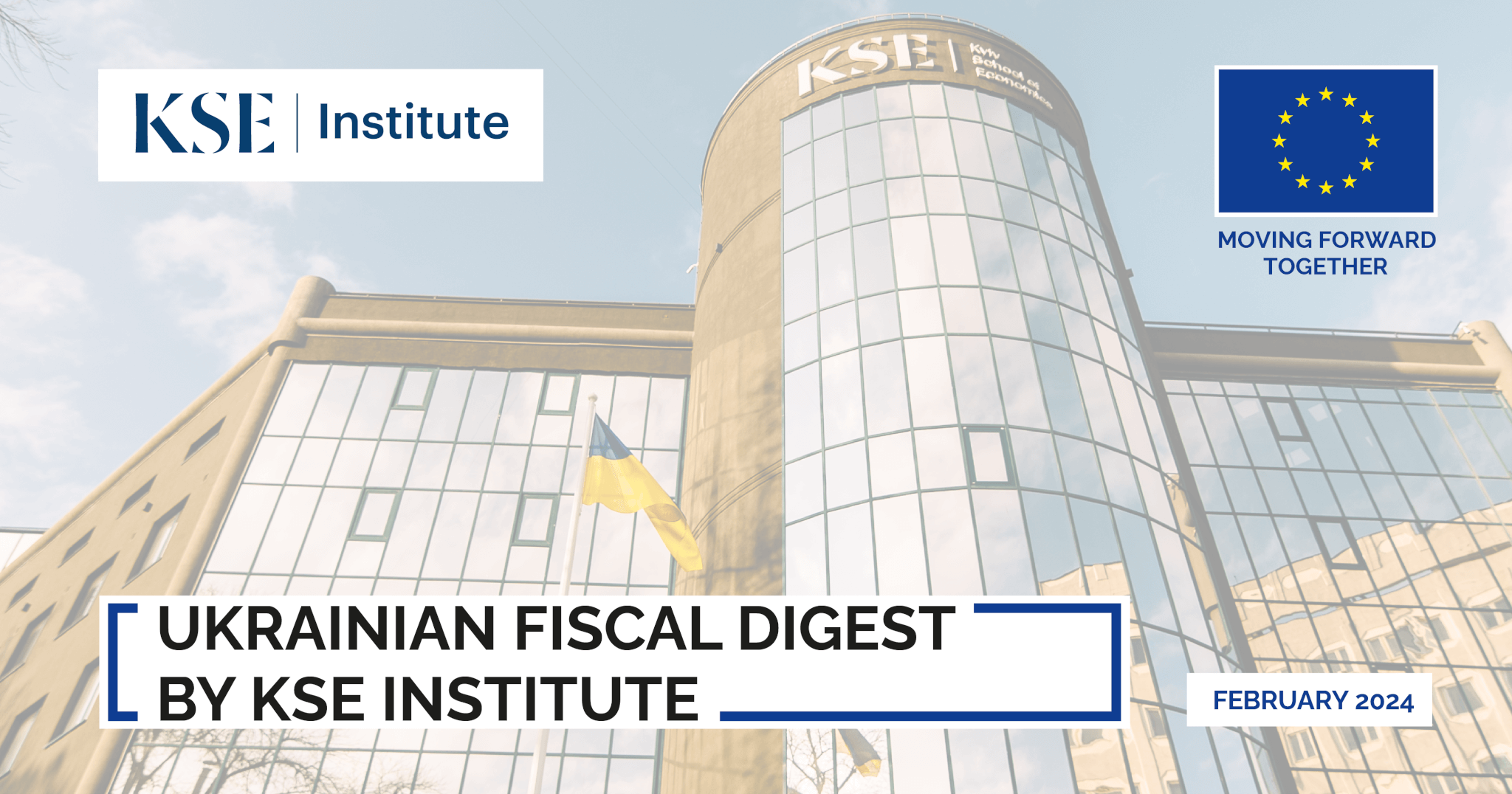- Kyiv School of Economics
- About the School
- News
- KSE Institute analyses 2023 budget outcomes in the first issue of the Ukrainian Fiscal Digest
KSE Institute analyses 2023 budget outcomes in the first issue of the Ukrainian Fiscal Digest
23 February 2024

KSE Institute has released the first issue of its new Ukrainian Fiscal Digest. The digest provides an analysis of Ukraine’s 2023 fiscal landscape, insights on the budget, public debt, and social data prepared by the Center of Public Finance and Governance.
Budget. In 2023, Ukraine’s state budget deficit reached $36.5 billion (20.6% of GDP), aligning with plans but 3.1 percentage points higher than in 2022 ($28.3 bn). Foreign aid played a crucial role, with $11.6 billion in grants (16% of total revenues) and $30.9 billion in loans for budget support. Net domestic bond issuance contributed $5.4 billion.
Revenues (excluding grants). In 2023, they increased by $20.2 billion or 49.1% YoY. Tax revenues rose by 12.1% due to the economy’s adjustment to the war, tax code changes, and inflation. Non-tax revenues increased by over 150%, mainly from a $2.0 billion transfer from the NBU.
Expenditures surged by 31.3% YoY to $109.8 billion, with $57.4 bn allocated to military spending and an additional $14.0 bn for security. However, spending decreased in Health care by 14% ($4.9 bn), Education sector by 8.6% ($1.7 bn), and Social protection by 2.6% ($12.8 bn). Ukraine’s budget benefitted from the postponement of debt service on its commercial and part of public external debt, with interest payments reaching $8.1 bn in 2023.
Total state debt (including guarantees). By the end of 2023, it rose to $145.3 billion, a 30.4% increase compared to the previous year. This represents 85% of the GDP, a significant jump from 49% in 2021. The debt structure shifted notably, with new external debt increasing by $31.2 bn and new domestic debt by $3.8 bn. As of the end of 2023, 73% of the total debt is in foreign exchange.
Fiscal outlook. In 2024, the projected deficit is $38.6 billion, with revenues expected to decline to $43.5 bn (-40% vs. 2023) and expenditures to drop to $81.3 bn (-26%). Two key risks include: 1) increased military spending due to security escalation; 2) revenue and financing shortfalls due to less assistance from international partners ($37.0 bn planned).
These are the key findings that cover only a part of the digest. KSE Institute offers a range of products; to receive them, simply complete the form. We provide a flexible subscription model and greatly value your feedback: https://forms.gle/mmpUw1kMapr5ZVGw8
This digest has been made possible through the generous support of the European Union in Ukraine.
